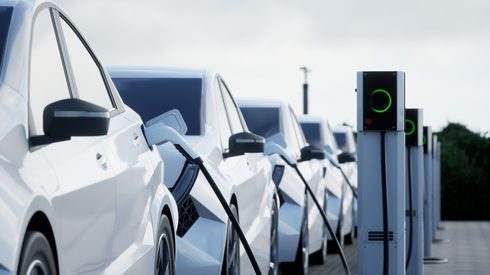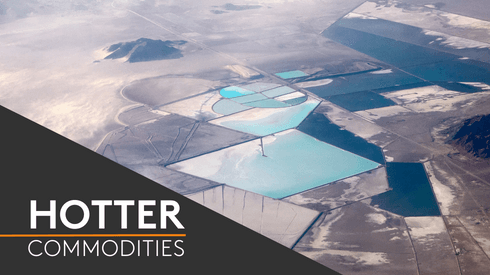Sentiment was firm in South Korea following recent capacity increases, and competition among recyclers resulted in a largely positive payables trend over the month.
In Southeast Asia, however, weakening lithium carbonate prices cooled demand for black mass and put pressure on payables.
Asia
Operating rates at some Korean processors increased recently and the extra demand generated by this had not been matched by a corresponding rise in supply, particularly regarding good quality material with impurities less than 2% copper and aluminium.
As a result, fierce competition developed among Korean recyclers keen to secure sufficient material to maintain operating rates.
“We are now operating at a high capacity, more than 90%, so we need to buy more black mass to feed our plant. Another major recycler was also quite aggressive in acquiring raw materials for their newly operating facility,” a key consumer source in South Korea told Fastmarkets in June.
The level of competition was such that payables had been driven to unprofitable levels, but recyclers needed to continue buying to maintain operating rates, Fastmarkets heard.
“I think the South Korean [black mass] market is overheated, leading to a tightness in materials. Purchasing black mass at such high levels gives no profit margins. But if any recycler needs to run their plants at high capacities, they have no choice but to pay this price,” a South Korean trading source said.
“Newer companies [in South Korea] want to establish supply chains for black mass, and we believe there are inventory levels required at plants mandated by the South Korean government,” a major seller source said.
“If you are in the commissioning phase of a plant, you can’t [just] stop it, so these units must keep buying black mass even at high payables,” a major European trader source said.
Also adding to the bullish mood was the understanding that the Chinese authorities were considering relaxing restrictions on import specifications for black mass or black powder into the country. If this transpires, it will likely result in heighted competition in international markets.
At the end of June, deal volumes increased and some transactions for US and Europe-origin NCM black mass were heard concluded at 70-72% CIF South Korea for material at the lower end of the metal contents range.
Several lots of good-quality US NCM black mass with low impurities were also heard sold around 78% CIF South Korea for nickel and cobalt, including the value of lithium.
Offers for EU-origin NCM were heard at 75% CIF South Korea for nickel and cobalt, value of lithium included. US suppliers were heard offering NCM black mass at 78-80% CIF for nickel and cobalt.
The average Fastmarkets’ payables assessments for black mass, NCM/NCA, payable indicator, nickel, cif South Korea, % payable LME nickel cash official price and black mass, NCM/NCA, payable indicator, cobalt, cif South Korea, % payable Fastmarkets’ standard-grade cobalt price (low-end) were both 72% in June compared with 71% in May.
The average Fastmarkets payable assessment for black mass, NCM/NCA, payable indicator, lithium, cif South Korea, % payable Fastmarkets’ lithium carbonate 99.5% Li2CO3 min, battery grade, spot prices cif China, Japan & Korea was unchanged month on month at 4% in June.
Fastmarkets’ daily price for black mass, NCM/NCA, inferred, cif South Korea averaged $4,454.34 per tonne in May. This compared with an average value in April of $4,721.86 per tonne.
Demand in Southeast Asia was comparatively subdued in June, with recyclers taking their cue from weak lithium carbonate prices.
“Chinese buyers were holding back from buying [black mass] due to weakening domestic lithium carbonate prices,” a trading source based in Singapore told Fastmarkets.
“Trading was subdued in the Malaysia market for black mass because the payables were dropping continuously in recent days. The market is quite volatile now,” a Southeast Asian recycler source said.
At the end of June, bids for NCM black mass were heard at 67-73% CIF Southeast Asia for nickel and cobalt, including the value of lithium.
Key market participants believed that the maximum level buyers in the region could pay after negotiations was 70-76% CIF for nickel and cobalt, including the lithium value, which would work out to be 68-74% CIF for only nickel and cobalt.
Deals for the high-grade black powder, with 6-7% lithium content, were heard at 85% CIF Southeast Asia for nickel and cobalt including value of lithium, this month. Korean workable prices for the material were heard at 85-90% CIF.
Europe
European black mass payables increased again in June amid higher demand in Asia. Transactions for hazardous waste-classified NCM black mass were heard at 55-60% EXW Europe during June, while material classified as product-status black mass was workable above 60% EXW Europe, according to market sources.
Despite the rise in Asia, some EU consumers reported a downtrend in offer prices during the month due to a continued oversupply of material in the European market and lower metal prices. In addition, some producers refrained from exporting black mass because of lengthy documentation and payment procedures, as well as higher freight costs.
The month averages of Fastmarkets’ payables assessments for black mass, NCM/NCA, payable indicator, nickel, domestic, exw Europe, % payable LME nickel cash official price and for black mass, NCM/NCA, payable indicator, cobalt, domestic, exw Europe, % payable Fastmarkets’ standard-grade cobalt price (low-end) stood at 57.75% in June, up from 55.80% in May.
Fastmarkets’ daily price for black mass, NCM/NCA, inferred, exw Europe averaged $3,481.63 per tonne in June. This compared with an average of $3,610.54 per tonne in May.
Keep up to date with global market insights and predictions for the battery recycling and black mass market. Talk to us today.






